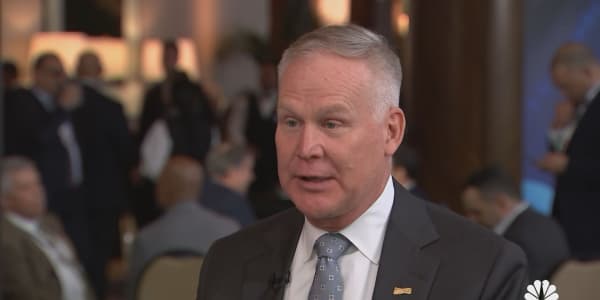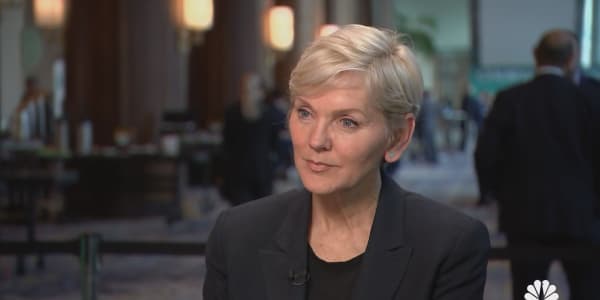The oil market will remain in a "fragile equilibrium" in coming years and could experience a price spike brought on by undersupply, Dallas Federal Reserve President Robert Kaplan said Tuesday.
Economists are wary of oil price spikes because they have historically been correlated with the onset of recessions. Crude oil is not only the major input cost for transportation fuels, but a key feedstock for a wide range of plastics and chemicals.
Kaplan expects oil supply from U.S. shale fields to fluctuate as prices rise and fall. American shale drillers are playing an outsize role in the market because they are expected to account for most of the world's growth in oil production over the next three years.
"The thing to watch out for is three to five years from now, because of the rapid decline curve of shale, I think the price risk is to the upside," Kaplan told CNBC from CERAWeek by IHS Markit in Houston.
American shale drillers are unique in their ability to quickly ramp up or throttle back production, allowing them to respond to the price environment. But shale wells also hit peak production quickly and then enter a long period of decline.
At the same that shale oil output is pushing U.S. production to record highs, energy companies are investing less in big projects that produce oil over a long period of time, Kaplan notes. This raises risks of oil demand outstripping supply, in his view.
"Shale isn't going to be enough to keep up with global demand," he said. "I think we could see a price spike to the upside, and I think people are probably not thinking about that risk as much as they should."
The International Energy Agency on Monday forecast that growing output from the United States and several other nations will meet rising demand over the next three years. But the agency warned that persistently low investment levels will put the supply-demand balance at risk from 2021 onward unless investment levels pick up.





